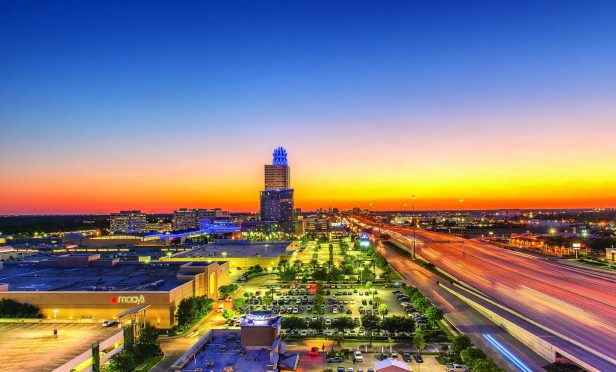 Memorial City Mall will become an integrated component of the 265-acre Memorial City campus.
Memorial City Mall will become an integrated component of the 265-acre Memorial City campus.
HOUSTON—During the next year, redevelopment plans will be taking shape for west Houston's Memorial City Mall, the former 1.7-million-square-foot super regional shopping center. The goal of the project is to create a unique experience for shoppers and visitors through additional public spaces, walkability, retail, restaurants, entertainment, curated mixed use and a master plan going beyond the next 50 years.
“If you don't embrace and capitalize on the paradigm shifts occurring in the retail and shopping center world today, you are losing ground fast,” said Terry Montesi, CEO, Trademark Property Company. “This is an evolving legacy asset.”
Fort Worth-based Trademark Property Company has been hired by MetroNational to lead planning efforts for the project. Trademark will develop a plan that re-envisions Memorial City Mall as an integrated component of the 265-acre Memorial City campus. Redevelopment initiatives will include reimagining the south side of the mall, which has now become a major opportunity with the closing of Sears.
“We will be working closely with the Johnson family and other stakeholders in the community over the next 12 months to develop an actionable plan for taking Memorial City Mall to the next level,” said Tommy Miller, managing director and chief investment officer, Trademark Property Company. “This strategic property is poised to enhance its position as the market dominant shopping destination in west Houston for many decades to come.”
Developed and owned by Houston-based MetroNational, Memorial City is located along the Interstate-10 corridor just inside Beltway 8. The mixed-use city-within-a-city development currently has 9 million square feet of developed real estate, including Memorial City Mall, 3.1 million square feet of class-A office space, multifamily units comprised of high-rise, midrise and garden apartments, the Westin Memorial City, Hotel ZaZa Memorial City, the Memorial Hermann Memorial City Medical Center, and The Square and The Lawn at Memorial City, two green spaces for events, concerts and festivals.
“Memorial City Mall is quite productive today, and the Memorial City District is vibrant, but places must evolve or become irrelevant,” Montesi tells GlobeSt.com. “It is a credit to the Memorial City ownership that they are embarking on a revisioning and redevelopment process before things are distressed. Regarding the 22-acre Sears parcel, our process is to listen to the market, collaborate with a number of world-class design firms, researchers, consultants and local experts to put together a plan that is as forward thinking and future proofed as possible. The mix will likely include office, residential, retail and entertainment, and public spaces with a state-of-the-art service level, technology and amenity package.”
Former Sears sites throughout the country are re-emerging as Whole Foods stores, creative office, medical office and call centers as well as mixed-use developments in the same vein as the Memorial City project. Nearly 300 of these sites are located in the top 10% of locations nationwide, based on CoStar's proprietary estimate of location-based productivity, known as a location quality score, GlobeSt.com learns.
Trademark's retail and mixed-used experience spans several notable redevelopment and development projects, including Rice Village and Market Street in The Woodlands, South Victory and Galleria Dallas in Dallas, WestBend and Waterside in Fort Worth, La Palmera in Corpus Christi, TX; Annapolis Towne Centre in Annapolis, MD; First Street Napa in Napa, CA and Saddle Creek in Germantown, TN, among others.
© 2025 ALM Global, LLC, All Rights Reserved. Request academic re-use from www.copyright.com. All other uses, submit a request to [email protected]. For more information visit Asset & Logo Licensing.








